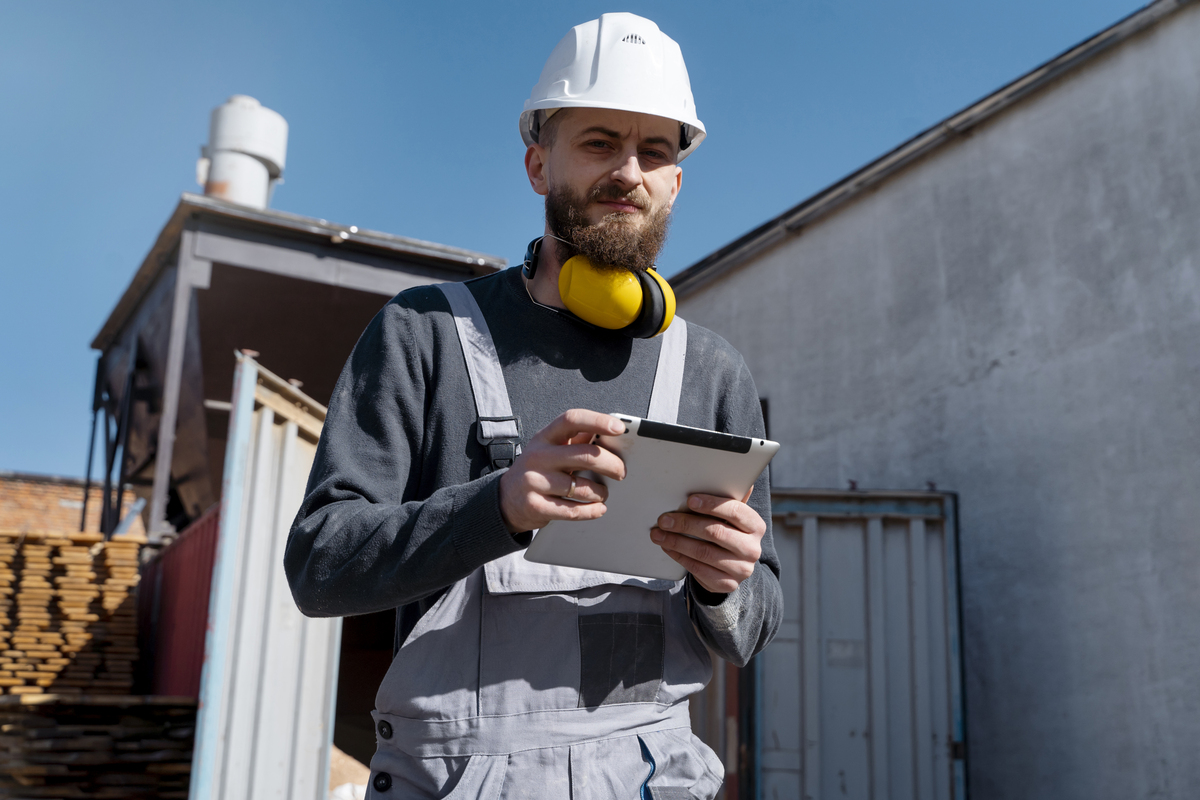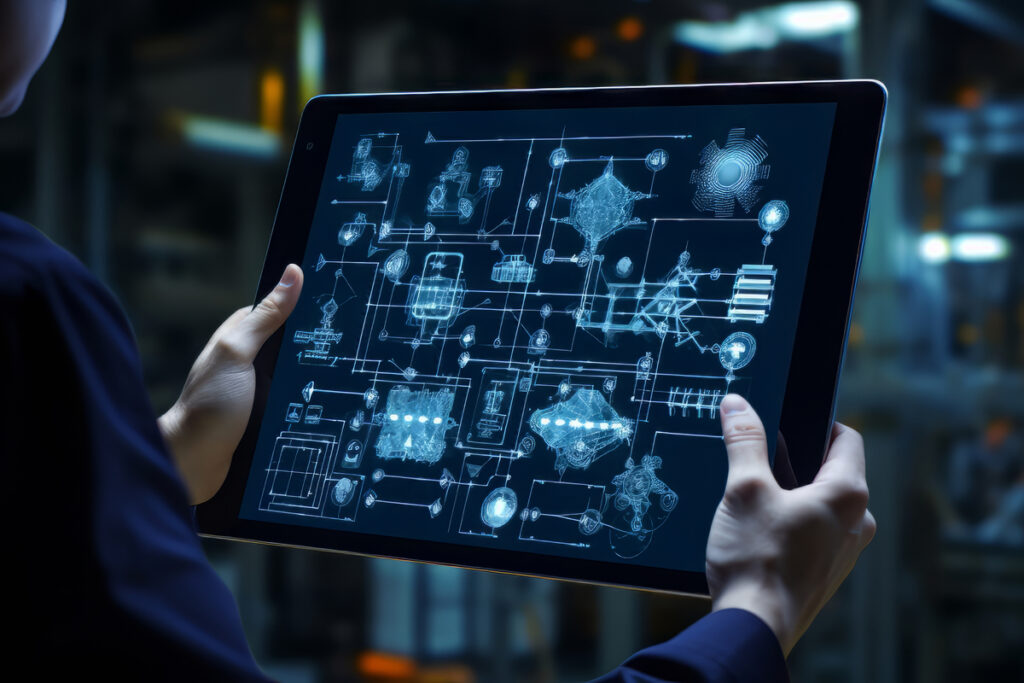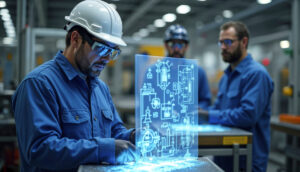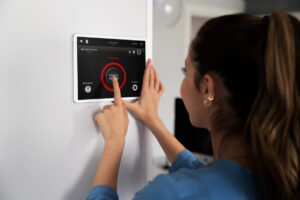Through the integration of cutting-edge technologies and creative methods, smart construction solutions benefits are completely transforming the construction sector. These solutions cover a wide range of technologies, including robotics, artificial intelligence (AI) in construction, the Internet of Things (IoT) in construction, and building information modeling (BIM), all of which are intended to improve sustainability, efficiency, and safety in construction projects.
Adopting smart construction solutions has several advantages, such as better quality control, accelerated project completion, lower costs, and better project management. By utilizing these technologies, construction organizations may improve resource management, eliminate errors, and streamline operations.
Additionally, by encouraging energy efficiency and lowering waste, smart construction solutions support environmental sustainability. The smart construction solutions benefits is revolutionizing a field where efficiency and accuracy are critical, propelling advancement and establishing new benchmarks for building procedures. Companies that want to remain competitive and fulfill the changing needs of the contemporary building landscape must adopt these innovations.
Table of Contents
Smart Construction Solutions Benefits: Enhancing Building Management and Automation in Construction
Smart construction solutions benefits include better resource use, increased energy efficiency, improved safety, stronger security, better visibility, and substantial cost savings. This all-encompassing method of building management not only propels development in the building sector but also establishes new benchmarks for building design and upkeep in the future.
1. Better Resource Utilization
The better use of resources is one of the main smart construction solutions benefits:
- Using building resources only when needed is ensured by data from sensors and Internet of Things devices.
- Access control readers and occupancy sensors provide businesses with information about peak hours and traffic patterns inside buildings.
- It is feasible to optimize timetables and improve resource management.
- Property managers are able to optimize daily operations with the use of IoT building technologies and analytics.
- Systems can be configured to place maintenance or supply orders automatically in response to predefined triggers or custom rules.
- By being proactive, waste is reduced, timely repair is guaranteed, and overall operating efficiency is improved.

2. Increased Energy Efficiency
The following smart construction solutions benefits are essential to achieving energy efficiency, which is a critical component of digital construction management:
- By using environmental controls that react to occupancy levels and changing weather conditions, smart building technology systems can greatly increase energy efficiency.
- Businesses may improve their energy use by matching consumption to demand with the help of these smart controls.
- Companies can improve their building’s green credentials and better manage costs in spite of rising energy rates.
- A prime example is Norway’s Powerhouse Telemark, a carbon-negative structure that consumes 70% less energy than a comparable conventional structure.
- For effective and safe access, industry leader Telemark uses mobile-first smart building apps and simplified cloud management.
Suggested article to read: How Construction Data Management Can Improve Project Efficiency (2025) | Importance of Energy Efficiency in Buildings
3. Safe and Healthy Environment
Any building must prioritize creating a safe and healthy environment, and smart construction solutions benefits shine in this regard:
- Regardless of the outside environment, a high degree of environmental control and intelligent IoT building automation guarantee a cozy and healthful environment.
- Air monitoring systems evaluate the quality of the air on a continual basis, lowering health hazards for residents and maintaining a safe environment.
- Emergency lockdown plans can be started, doors for emergency escape can be unlocked, and smart safety sensors can automatically alert security staff and emergency services.
- These automated reactions improve the building’s general security by safeguarding its contents and people.

4. Increased Security
Building management places a high priority on security, and the following smart construction solutions benefits provide significant improvements in this area:
- In addition to preventing unwanted entry, smart access control systems and remote security monitoring shield building residents and their belongings from outside dangers.
- Security staff can see occurrences and anomalous activity more clearly when access control systems are integrated with smart sensors, security cameras, and alarms.
- More efficient reactions to possible security breaches are made possible by this combination.
- Artificial intelligence (AI)-enabled security cameras can increase efficiency and performance even further, bolstering the building’s security.
Suggested article to read: AI in Project Management; Ultimate Guide 2025 | AI and Machine Learning in Co-Pilot for Construction; 2025 Guide
5. Increased Awareness
Large volumes of data on the use of resources and space are produced by intelligent building technologies, giving property managers important insights:
- With the use of this data, system performance may be evaluated and well-informed decisions about future adjustments to building capacity or resource allocation can be made.
- Property managers, for instance, can reorganize underutilized spaces to better meet the demands of tenants if data suggests such a need.
- This degree of visibility guarantees optimal building performance and efficient resource use.
6. Decreased Expenses
The potential for large long-term cost savings is one of the most important smart construction solutions benefits:
- Energy costs are directly decreased by increased energy efficiency.
- Property managers can find possibilities to minimize total space requirements by using data on occupancy and usage.
- To reduce maintenance and operational expenses, it may be possible to repurpose or reduce the size of unoccupied areas in a building.
- System performance data can serve as the foundation for automated preventative maintenance plans, which lowers the cost of replacement and long-term maintenance.
- IoT building automation contributes to cost-effective building management by relieving the strain on facility management teams and lowering support expenses.

Conclusion
The building industry is changing as a result of smart construction solutions benefits, opening the door to a more productive, economical, and ecological future. Through the integration of technologies such as BIM, IoT, AI, and robotics, construction projects can attain previously unattainable levels of accuracy, security, and excellence. These innovations not only simplify construction project management but also cut expenses and completion times dramatically.
Furthermore, it is impossible to overestimate the positive environmental smart construction solutions benefits since they increase waste reduction and energy efficiency, making the sector greener overall. Adopting smart construction solutions is becoming more and more important as the need for creative and sustainable building methods grows.
Businesses that use these technologies will be more equipped to handle the demands of contemporary construction, maintaining their competitiveness and ability to produce superior outcomes. In conclusion, smart construction solutions are essential to the future of the building sector—they are not merely a choice.
Suggested article for reading:
The Future of Smart Construction; 2025 Review
Smart Construction: Top 7 IoT Applications
Technologies Transforming Construction Monitoring; 2025 Review
Resources:
SmartConstruction | Iskalo | Avigilon | LetsBuild
For all the pictures: Freepik





